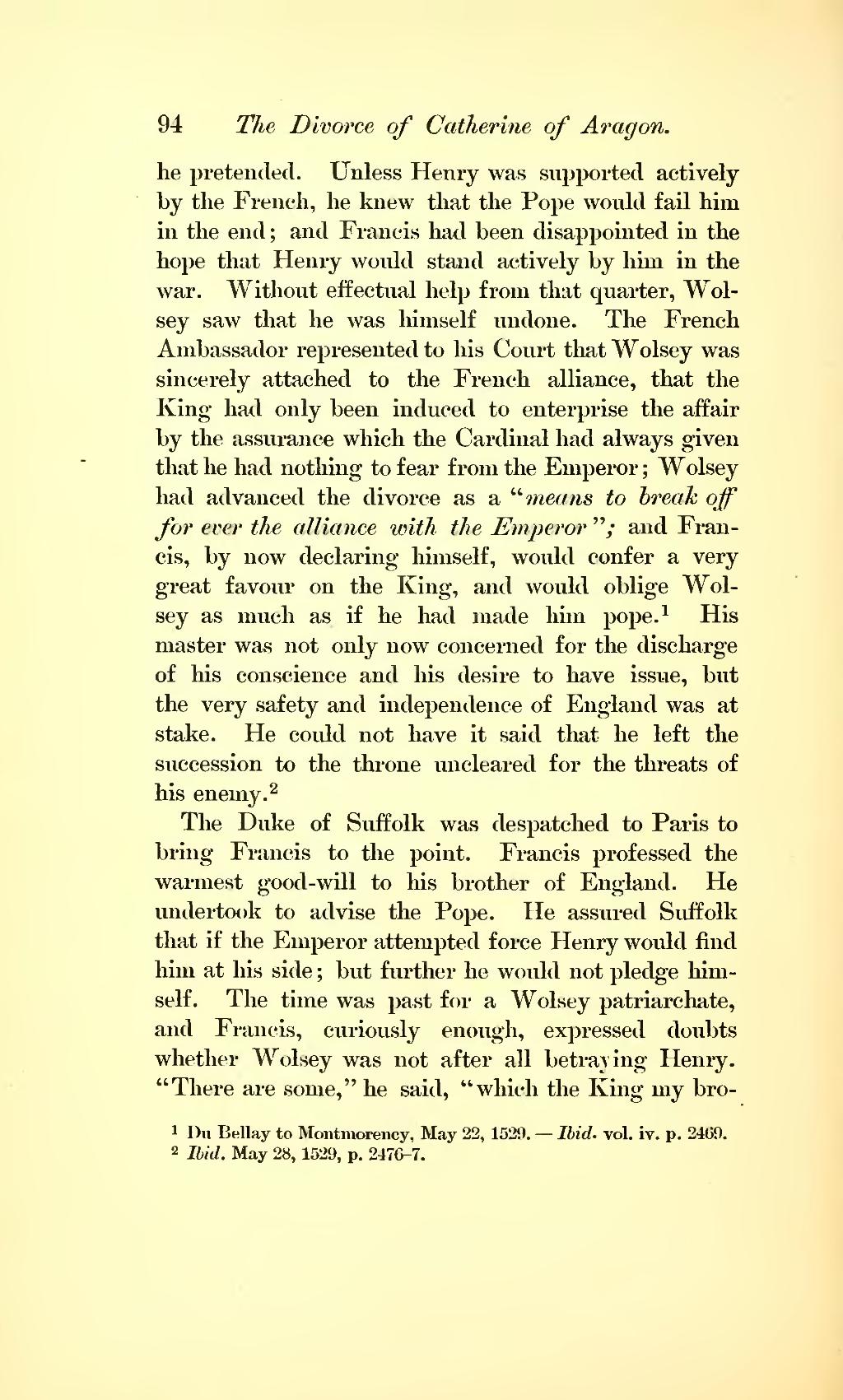he pretended. Unless Henry was supported actively by the French, he knew that the Pope would fail him in the end; and Francis had been disappointed in the hope that Henry would stand actively by him in the war. Without effectual help from that quarter, Wolsey saw that he was himself undone. The French Ambassador represented to his Court that Wolsey was sincerely attached to the French alliance, that the King had only been induced to enterprise the affair by the assurance which the Cardinal had always given that he had nothing to fear from the Emperor; Wolsey had advanced the divorce as a "means to break off for ever the alliance with the Emperor"; and Francis, by now declaring himself, would confer a very great favour on the King, and would oblige Wolsey as much as if he had made him pope.[1] His master was not only now concerned for the discharge of his conscience and his desire to have issue, but the very safety and independence of England was at stake. He could not have it said that he left the succession to the throne uncleared for the threats of his enemy.[2]
The Duke of Suffolk was despatched to Paris to bring Francis to the point. Francis professed the warmest good-will to his brother of England. He undertook to advise the Pope, He assured Suffolk that if the Emperor attempted force Henry would find him at his side; but further he would not pledge himself. The time was past for a Wolsey patriarchate, and Francis, curiously enough, expressed doubts whether Wolsey was not after all betraying Henry. "There are some," he said, "which the King my bro-

